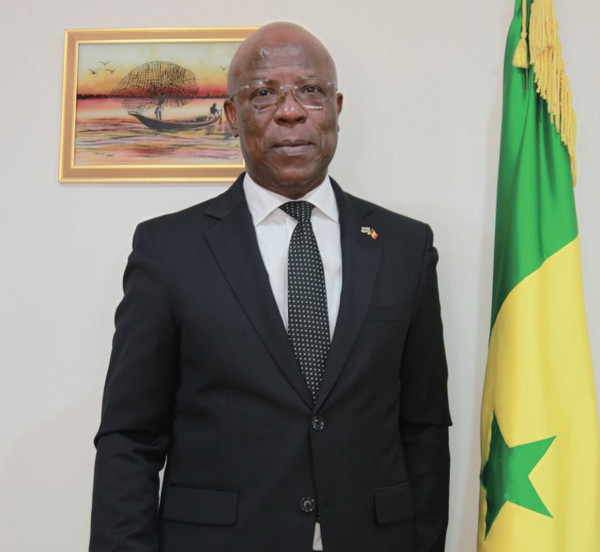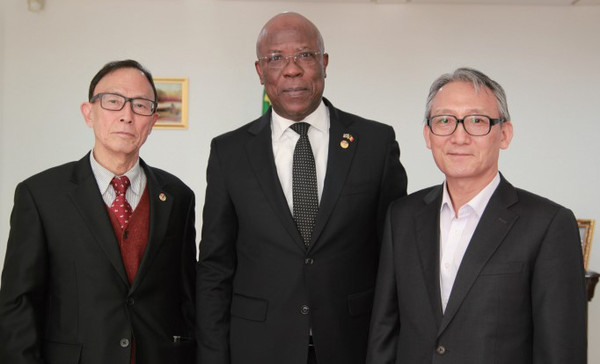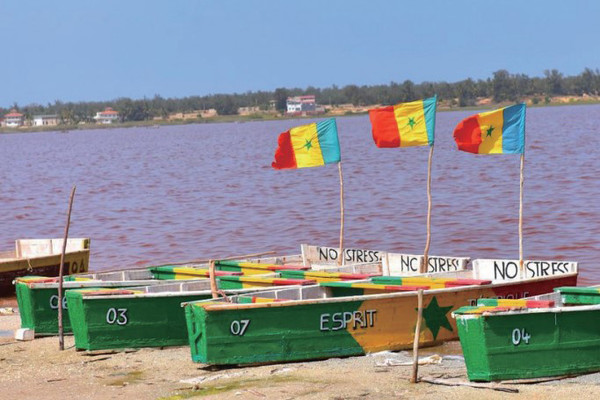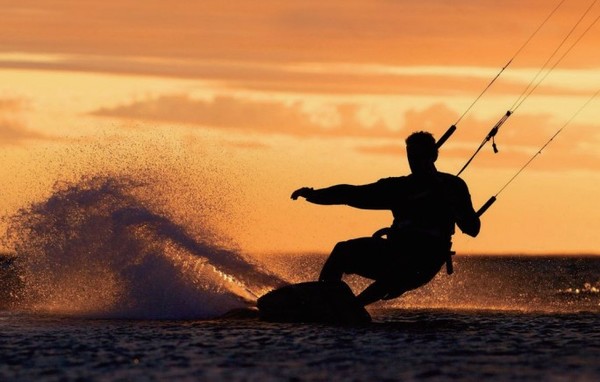
In commemoration of Senegal's Independence Day, April 4th, ‘Seoulcity’ magazine had an exclusive interview with H.E. Mamadou Gueye Faye,Ambassador of Senegal to Korea for the prospects of strengthening bilateral economic ties.
In particular, Senegal and Korean are expecting 60thanniversary of the establishment of diplomatic ties next year.
Following are full texts of interview.
Q. Please tell us the significance of your Independence Day for our readers
Independence represents a country’s accession to sovereignty. Colonized by France in the 17th century, Senegal followed the waves of independence that have risen all over Africa in the 1950s and preceded most of the African countries which have achieved their independence in this period.
It is thanks to the signing of the power transfer agreements between the French Community and the Mali Federation bringing together French Sudan (now Mali) and Senegal that the two countries achieved independence before choosing to separate a few months later. Subsequently, Senegal has retained April 04, as the official date of the anniversary of its independence, since 1961.
The celebration takes place every year, in Dakar, through a civil and military parade. Thousands of people, hundreds of motorized vehicles and dozens of horses parade in the presence of the Head of State. Organized by the Defense and Security Forces, a military and paramilitary parade is generally held on the Boulevard du Général De Gaulle.
Other big cities also celebrate the independence under the direction of the administrative authorities. The day is a public holiday for public and private administrations. School fairs and cultural events are organized throughout the country, giving the event a national character.
The celebration is often associated with the presentation of decorations of national orders.
This wide mobilization of all categories of the nation teaches in many ways the importance of this date to the Senegalese people.
Senegal's Independence Day remains one of the most significant events of the year and allows the population to commune with its army, guarantor of the security and sovereignty of the country.

Q. Please explain investment environments of Senegal for Korean potential investors and any special favors to foreign investors
Senegal has always attached great importance to the promotion of private investmentthrough the establishment of an advantageous regulatory framework and the creation of an environment giving incentives to business.
The strengthening of Senegal’s attractiveness as investment destination led to the adoption of Law No. 2004- 06 of February 6, 2004, establishing the Investment Code.
This Code offers tax advantages through the tax credit and the suspension of VAT.
The tax credit allows companies with an approved program to obtain a reduction of tax they owe the country by deducting 40% of the amount of investment from their taxable profit within the limit of 50% of the profit for new companies and 25% for extension projects.
Companies operating in eligible activity sectors, depending on the amount of investment, 100 million in general, 15 million for SMEs and 250 billion for large investments, and depending on the region where business are established, can benefit from a tax reduction for investments (new and extension).
The benefit of tax reduction is more important for investments made outside the Dakar region. In addition, benefiting from a tax credit, these companies have the possibility of deducting charges applicable between 5 and 10 years.
Approved companies also benefit from a VAT suspension on purchases made during the investment phase, which eases the tax burden and allows them to devote their cash only to investment expenses.
These advantages have been reinforced by the establishment of Special Economic Zones (SEZs). The incentive system applicable to Senegal's SEZs, supported by Law 2017-07 aligned with international best practices, specifies, in particular, the tax and customs advantages offered to companies benefiting from an authorization issued by the Administrator of the SEZs, in this case the APIX.
These advantages are :
·duty-free admission of all duties and taxes collected at the customs, excluding community levies on raw materials, equipment, other goods and as well as duty-free export outside the national territory of these goods;
·exemption from the income taxes;
·corporate tax rate at 15%;
·possibility of concluding fixed-term contracts over 5 years;
·exemption from the flat-rate contribution paid by the employer;
·exemption from the minimum flatrate tax on companies.
Specifically concerning foreign investors, the investment code provides, in addition, certain guarantees including:
·protection against nationalization, expropriation or requisition;
·availability of foreign currency;
·guarantee of capital transfer;
·access to raw materials;
·equal treatment between national and foreign investors;
·economic and competitive freedom.

Q. What do you think would be the most attractive industrial sectors for Korean companies to invest in Senegal
The priority industrial investment sectors targeted by Senegal are:
Agriculture and agribusiness:
Senegal is capable to develop a wide range of agricultural products thanks to its various agro-ecological zones.
The country benefits from nearly 4 million hectares of arable land suitable for agricultural production, as well as an excellent environment for agricultural production. A diversity of natural environments, spread over regional poles with specific characteristics (soils, climate, types of crops), characterizes the territory.
Seafood and aquaculture:
Many opportunities exist in the production and industrial processing of various marine species.
Companies in this sector are still looking for foreign partners to modernize their practices and to increase production, including through the operation of more modern and more environment- friendly vessels.
Sixteen (16) Korean companies currently operating in the fishing sector are doing very successful business in Senegal.
Mines
The number of big companies investing in this sector is growing significantly due to its promising prospects.
The country is open to private investors for the development of traditional sectors such as phosphate and cement, but also for the research and exploitation of gold, iron, marble in the region of eastern Senegal, as well as zircon and titanium at the region of the Grande Côte.
Oil and gas
Senegal have carried out explorations since its independence in 1960 and made important discoveries in recent years in the oil and gas sector.
Alongside these industrial sectors, Senegal also expects a large participation of national and foreign investors in areas such as housing, energy, education, ICT and infrastructure.
Regarding the infrastructure sector, the Government has an ambitious rail renewal project in Senegal (S2RS) with 8 railway lines over a length of 2,000 km, among which 650 km need to be rehabilitated.
The cost of this 15-year project is estimated at $ 3.5 billion.
The Embassy intends to meet Korean partners on this subject very soon and present the results before the roundtable on the financing of structural rail projects scheduled for June this year is held.

Q. Please introduce outstanding Korean companies’ activities in Senegal
The Korean private sector is duly represented in Senegal by companies like DONGWON with CAPSEN and SCASA, Grand Bleu and other DARLING and SENECOR. However, in view of the existing potential, a lot of effort can still be made in this direction. This is the reason why the Embassy is planning to organize, during the year, if all the conditions are met, an economic forum intended, on the one hand, to present all the investment opportunities of our country in order to attract as many Korean companies as possible and, on the other hand, to put Korean companies in touch with Senegalese counterparts to allow the development of fruitful partnerships between the two private sectors.
Q. Please introduce tourist attractions in Senegal for Korean tourists abroad
Like many countries, Senegal has had to completely review its tourism policy in terms of model and targets by integrating eco-responsible tourism and diversifying the offer in order to reach different publics. This is why, a section of the country's economic policy is devoted to the development and restructuring program of national airports.
The development of these infrastructures will allow tourists arriving in Dakar, after having enjoyed the many activities offered by this city, to move more easily to the heart of the country, and to meet the different landscapes and histories that our country offers them.
Diverse and numerous touristic activities are able to suit different types of visitors ranging from business travelers who want to rest after important days of work and to relax in a calm seaside resort, to water sports enthusiasts who would like to surf at the tip of the Atlantic Ocean or the couples on their honeymoon, enjoying a romantic night under the stars in the middle of the Lompoul desert. Senegal is also a perfect destination for families, with the possibility of mixing a trip to the beach with days of excursions to meet the animals in the Bandia nature reserve or the national parks of Djoudj, Niokolo-Koba or la langue de Barbarie. In the Fathala wildlife reserve, you can even take a walk with wild lions, which is an adrenaline-fueled adventure that you won’t never forget.
For those who are interested in spiritual tourism, a trip to Senegal will allow them to visit our religious capitals, like Tivavouane, Touba, Thiénaba, Yoff, Popenguine or even Medina Baye. They can also go to sites full of history, such as the House of Slaves on the Island of Gorée or the Museum of Black Civilizations, a constant reminder of Africa's contribution to the cultural and scientific world heritage.
The trip cannot end without going through the Sine Saloum region, a hybrid territory, a UNESCO World Heritage Site, famous for its green landscapes and the multiple colors of the Palmarin salt wells. The Delta du Saloum natural park is the ideal place to learn about kitesurfing. The region, rich in its beaches dotted with palm trees, multitudes of islets and tiny inlets, is a cocoon of calm and serenity in the heart of Senegal.
Q. Please let us know your point of view on how to strengthen further the close economic and cultural ties between Senegal and Korea in the years to come
Thanks to the excellent relations between the two countries, Korea has supported Senegal in the financing of several projects such as the construction of fishing docks, transport vessels, dredging vessels for the Casamance River, the Senegal River and the arm of the sea of Sine Saloum, the purchase of a large number of refrigerated trucks, the construction and equipment of the International Oncology Center and the construction of the Higher Institute of Vocational Education (ISEP) in Diamniadio , the construction of fish markets and the acquisition of military equipment.
The cooperation in the sanitary sector is in the process of development and Important projects which are also being planned will soon see the light of day thanks to the reciprocal commitment of the two Heads of State.
It is in this context that an important Senegalese delegation composed of officials from the ministries in charge of Finance, Economy, Fisheries and Maritime Economy, visited Korea from April 4 to 10, in order to discuss with our Korean partners on the on-going projects in Senegal and on other development projects to be carried out together in the future.
The objective is to arrive at a Framework Agreement bringing together several structuring projects, which will make it possible to be more efficient in the conduct of cooperation.
Senegal has also started with the Korea Federation of Fire Association (KFFA), the study of projects for the realization of a training center as well as an industrial park. This project will provide Africa with the means to fight more effectively against catastrophes.
Finally, the organization of a Joint Commission for cooperation in Dakar was proposed in the Embassy's 2020 action plan, hoping for its realization as soon as the conditions for a face-to-face meeting are met.

